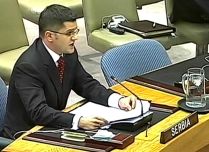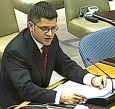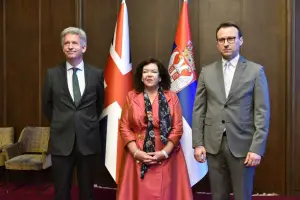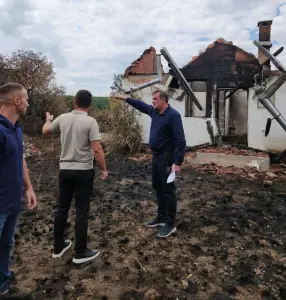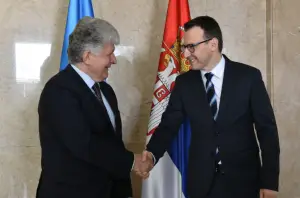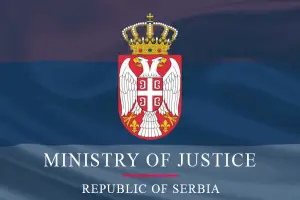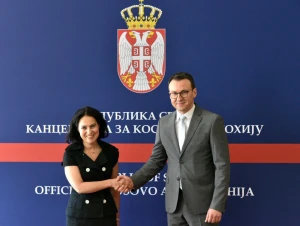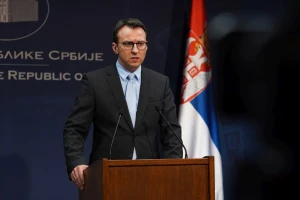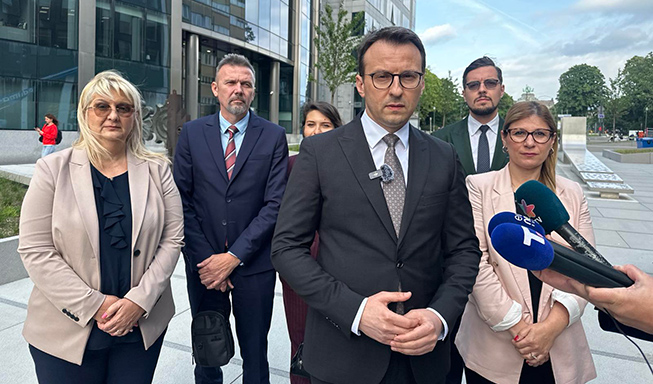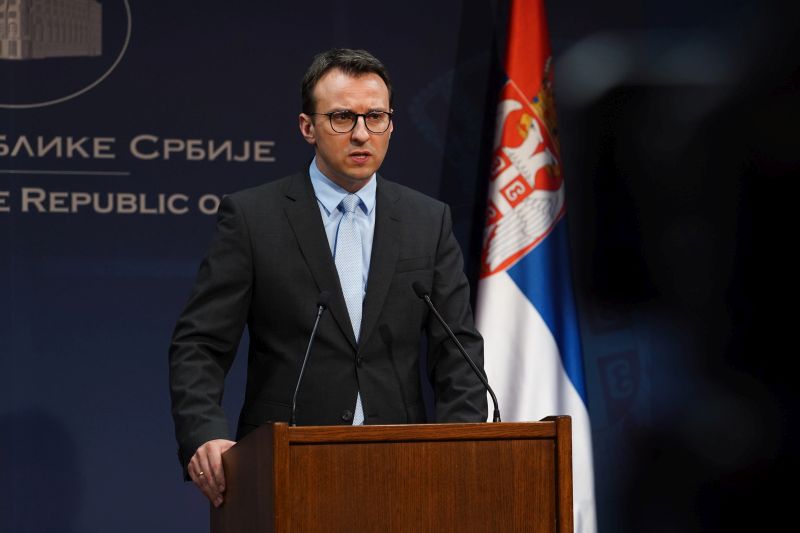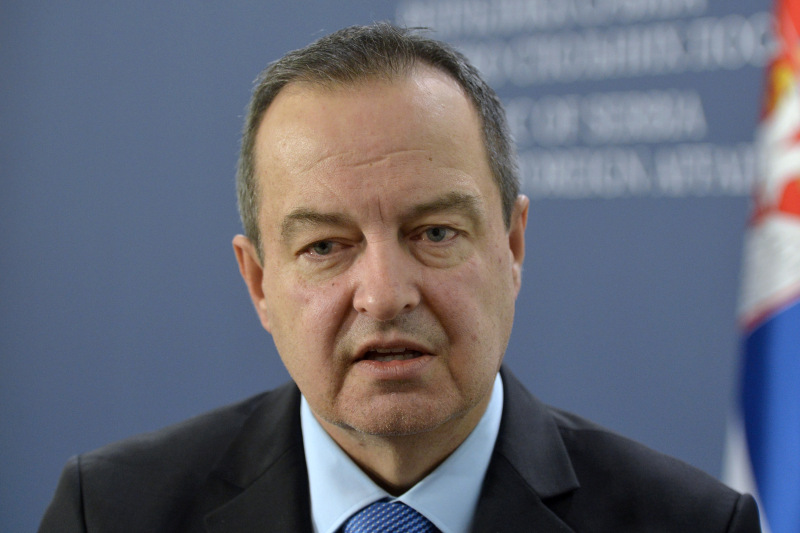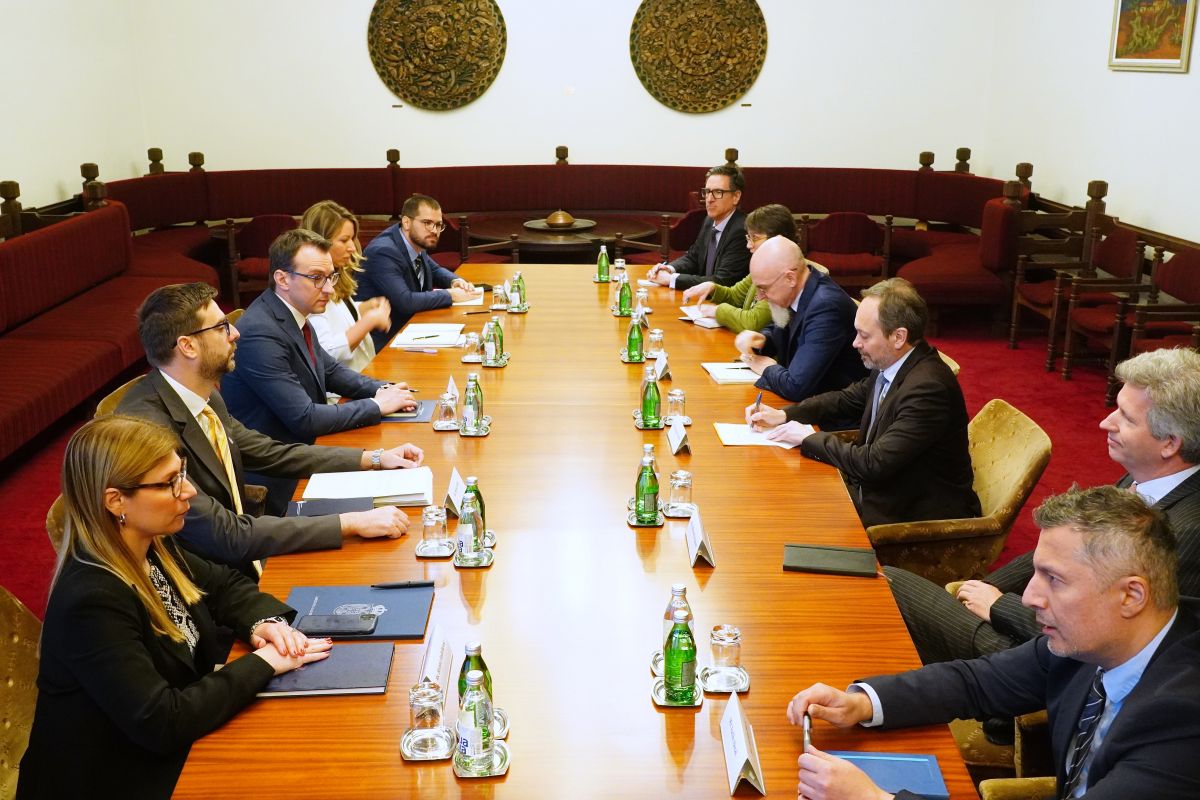Q:
A:
Serbia advocates investigation on allegations from Dick Marty’s report under UN mandate
Belgrade/New York,
16 February 2011
Minister of Foreign Affairs Vuk Jeremic, speaking in New York tonight, advocated a comprehensive and independent investigation into the allegations from the report of the Council of Europe special rapporteur Dick Marty on the trade in human organs, which would be under the UN mandate.
At a UN Security Council session, which looked at the latest report of UN Secretary General Ban Ki-moon about the situation in the province for the period December 19 2010–January 15 2011, Jeremic stressed Serbia’s stance that the only solution is to launch an ad hoc mechanism, established by the Security Council and responsible to this body.
The Minister explained that all war crimes committed during the wars in the Balkans have so far been investigated within the mandate of the UN Security Council, regardless of which side the perpetrators belonged to and their political role.
It is only through the activity of the Security Council that we can silence all talks about double standards, Jeremic underlined, adding that the EULEX mission does not have the mandate to implement a serious investigation.
EULEX’s contribution to uncovering the truth will be crucial. However, this will not be enough because EULEX has no territorial jurisdiction over all the countries where the investigation should be carried out, because the accusations refer not only to the territory of Kosovo-Metohija, but also to various UN members in Europe, Asia and Africa, Jeremic observed.
Furthermore, we must ensure that the investigative mechanism has the capacity to protect witnesses in order to guarantee a proper trial to everyone, said the Minister.
Jeremic warned that witness protection is an acute problem in the province, adding that one institution must coordinate the investigation, manage jurisdiction issues and enable a proper distribution of justice.
A coherent approach to the war crimes issue is a crucial element of joint efforts to consolidate peace and stability in the Balkans, he outlined.
Serbia is asking the UN Security Council to look into the validity of accusations stated in Marty’s report and, if these accusations are confirmed, to bring all perpetrators to justice, the Minister observed.
We do not expect the debate to finish today. The session is just the beginning of joint efforts to reach a consensus over the best way to solve this issue, Jeremic said, adding that human organ trafficking is a major ethical issue for Serbia and a human rights problem.
He stressed that this is a case of individual responsibility, and not the guilt of an entire people, which is why the investigation must not be politicised.
The investigation must not be linked with the diplomatic dispute about the province, but must be carried out in the service of truth and reconciliation, he noted.
A successful conclusion to the investigation will be a precondition for lasting peace and will mark a final break up with the policies that promoted ethnic cleansing and criminalisation of the society.
Jeremic reiterated at the session that the independence of Kosovo is null and void for Serbia, adding that Serbia will not accept it, either explicitly or implicitly.
He called upon the majority of UN members who have not recognised the province’s independence to adhere to their principled stance and thus make sure that unilateral attempts at imposing a solution to ethnical and territorial disputes do not become legitimate and to prevent Kosovo from becoming a dangerous and destabilising precedent.
This will help to establish a healthy atmosphere and enable the beginning of the long anticipated dialogue between Belgrade and Pristina, Jeremic stressed, adding that Serbia shares the UN Secretary General’s stance that this is a precious opportunity to resolve long-standing issues and consolidate peace, stability and reconciliation in Kosovo and the entire region.
There will be plenty of issues to discuss, and some will be complex, which is why we need commitment in order to create mutual trust and understanding.
If both sides show good faith and work hard with the aim of reaching constructive agreements, there will be results to the benefit of all people in the province.
This can open a path for the ultimate result of the talks, namely peace between Serbs and Albanians throughout the region, he added.
The Minister stressed that Serbia is committed to solving all differences at the negotiating table, adding that it intends to use the opportunity provided by the talks as much as possible, and expects nothing less from the other side.
This is why it is crucial that no one should attempt to change the situation in the field during the talks as they might be seriously undermined and perhaps fatally jeopardised.
Numerous reports by the UN Secretary General warned of this peril, he said, adding that the latest report points out the small number of IDPs who returned to their homes.
Namely, within the stated period only 120 Serbs returned out of 205,835 that were banished from June 1999, Jeremic specified.
As for the Serbian cultural heritage, Serbia is calling upon all potential donors to help complete the reconstruction of Serbian churches and monasteries damaged and destroyed in the March 2004 pogrom.
The democratisation index for 2010 listed in the UN report shows that the democratic processes in Kosovo do not meet democratic standards, which was further affirmed at the recently held election in the province.
The UN Secretary General’s report says that the special envoy did not announce the election and that it was not organised within UN Security Council Resolution 1244, Jeremic said, adding that the European Parliament also highlighted these omissions and irregularities in the election procedure.
The Minister explained that all war crimes committed during the wars in the Balkans have so far been investigated within the mandate of the UN Security Council, regardless of which side the perpetrators belonged to and their political role.
It is only through the activity of the Security Council that we can silence all talks about double standards, Jeremic underlined, adding that the EULEX mission does not have the mandate to implement a serious investigation.
EULEX’s contribution to uncovering the truth will be crucial. However, this will not be enough because EULEX has no territorial jurisdiction over all the countries where the investigation should be carried out, because the accusations refer not only to the territory of Kosovo-Metohija, but also to various UN members in Europe, Asia and Africa, Jeremic observed.
Furthermore, we must ensure that the investigative mechanism has the capacity to protect witnesses in order to guarantee a proper trial to everyone, said the Minister.
Jeremic warned that witness protection is an acute problem in the province, adding that one institution must coordinate the investigation, manage jurisdiction issues and enable a proper distribution of justice.
A coherent approach to the war crimes issue is a crucial element of joint efforts to consolidate peace and stability in the Balkans, he outlined.
Serbia is asking the UN Security Council to look into the validity of accusations stated in Marty’s report and, if these accusations are confirmed, to bring all perpetrators to justice, the Minister observed.
We do not expect the debate to finish today. The session is just the beginning of joint efforts to reach a consensus over the best way to solve this issue, Jeremic said, adding that human organ trafficking is a major ethical issue for Serbia and a human rights problem.
He stressed that this is a case of individual responsibility, and not the guilt of an entire people, which is why the investigation must not be politicised.
The investigation must not be linked with the diplomatic dispute about the province, but must be carried out in the service of truth and reconciliation, he noted.
A successful conclusion to the investigation will be a precondition for lasting peace and will mark a final break up with the policies that promoted ethnic cleansing and criminalisation of the society.
Jeremic reiterated at the session that the independence of Kosovo is null and void for Serbia, adding that Serbia will not accept it, either explicitly or implicitly.
He called upon the majority of UN members who have not recognised the province’s independence to adhere to their principled stance and thus make sure that unilateral attempts at imposing a solution to ethnical and territorial disputes do not become legitimate and to prevent Kosovo from becoming a dangerous and destabilising precedent.
This will help to establish a healthy atmosphere and enable the beginning of the long anticipated dialogue between Belgrade and Pristina, Jeremic stressed, adding that Serbia shares the UN Secretary General’s stance that this is a precious opportunity to resolve long-standing issues and consolidate peace, stability and reconciliation in Kosovo and the entire region.
There will be plenty of issues to discuss, and some will be complex, which is why we need commitment in order to create mutual trust and understanding.
If both sides show good faith and work hard with the aim of reaching constructive agreements, there will be results to the benefit of all people in the province.
This can open a path for the ultimate result of the talks, namely peace between Serbs and Albanians throughout the region, he added.
The Minister stressed that Serbia is committed to solving all differences at the negotiating table, adding that it intends to use the opportunity provided by the talks as much as possible, and expects nothing less from the other side.
This is why it is crucial that no one should attempt to change the situation in the field during the talks as they might be seriously undermined and perhaps fatally jeopardised.
Numerous reports by the UN Secretary General warned of this peril, he said, adding that the latest report points out the small number of IDPs who returned to their homes.
Namely, within the stated period only 120 Serbs returned out of 205,835 that were banished from June 1999, Jeremic specified.
As for the Serbian cultural heritage, Serbia is calling upon all potential donors to help complete the reconstruction of Serbian churches and monasteries damaged and destroyed in the March 2004 pogrom.
The democratisation index for 2010 listed in the UN report shows that the democratic processes in Kosovo do not meet democratic standards, which was further affirmed at the recently held election in the province.
The UN Secretary General’s report says that the special envoy did not announce the election and that it was not organised within UN Security Council Resolution 1244, Jeremic said, adding that the European Parliament also highlighted these omissions and irregularities in the election procedure.

